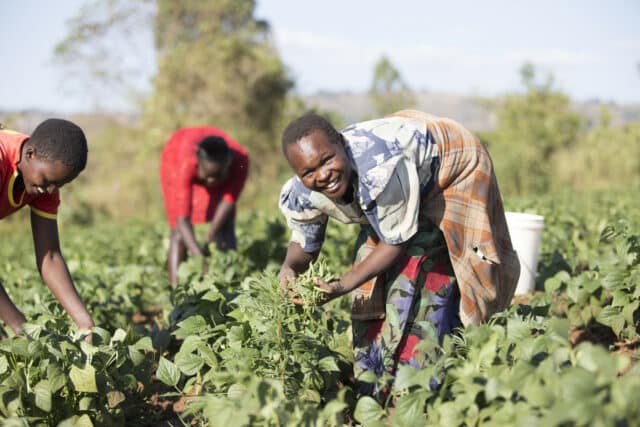Our work
Our programmes
Browse our programmes to learn more about the innovative ways we're partnering with farmers to grow a greener future.
Filter by:
Active
Participatory forest management
Running since
2022
Country
Ethiopia
Target reach
7,200
Key focus areas
Act on climate change
Increase incomes
Protect ecosystems
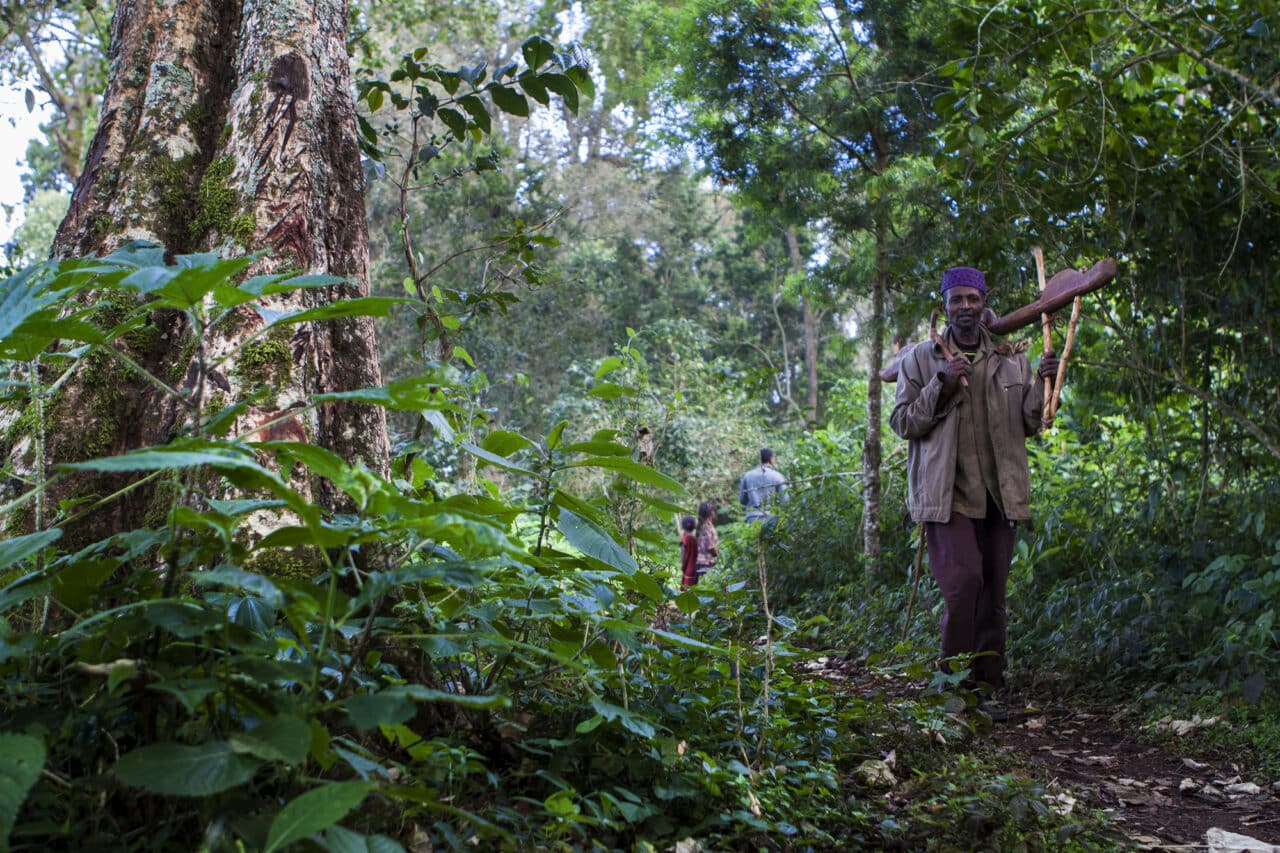
Participatory forest management
Running since
2022
Country
Ethiopia
Target reach
7,200
Key focus areas
Act on climate change
Increase incomes
Protect ecosystems
Active
Participatory forest management
Our Participatory Forest Management project (PFM) aimed to improve forest conservation in two communities, Harena Buluk and Dello Mena woredas, in Ethiopia that have experienced high population growth.
We supported forest community-based organisations (CBOs) to produce and sell more high-quality coffee, improve livestock productivity in a sustainable way and generate knowledge that could guide further livelihood and conservation activity.
Building on past interventions in Ethiopia, the project provided training in forest-friendly farming techniques, fodder production, business skills, biodiversity monitoring and biogas technology to over 1,900 people, who went on to train and assist at least 5,300 more people.
Running since
2022
Country
Ethiopia
Target reach
7,200
Key focus areas
Act on climate change
Increase incomes
Protect ecosystems
Active
Nature-based solutions
Running since
2023
Country
Ethiopia
Target reach
87,000 households
Key focus areas
Act on climate change
Increase incomes
Protect ecosystems
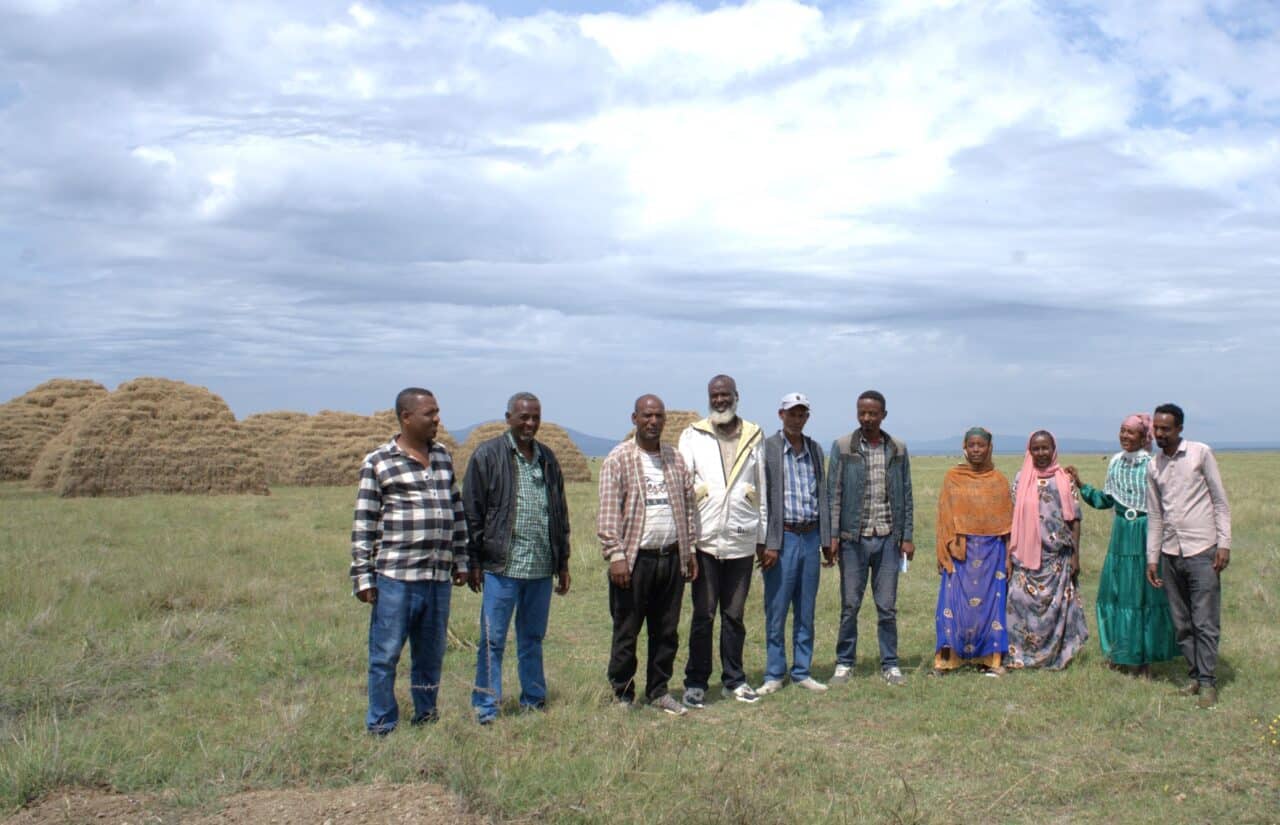
Nature-based solutions
Running since
2023
Country
Ethiopia
Target reach
87,000 households
Key focus areas
Act on climate change
Increase incomes
Protect ecosystems
Active
Nature-based solutions
Farm Africa, along with nine partners, is implementing the four-year Nature-based Solutions for Sustainable and Inclusive Development (NSSID) programme in Ethiopia to reduce poverty, build communities’ resilience to climate change and protect the environment.
Running since
2023
Country
Ethiopia
Target reach
87,000 households
Key focus areas
Act on climate change
Increase incomes
Protect ecosystems
Active
Gender transformation and climate resilience
Running since
2024
Country
Ethiopia
Target reach
37,315
Key focus areas
Act on climate change
Empower women
Protect ecosystems
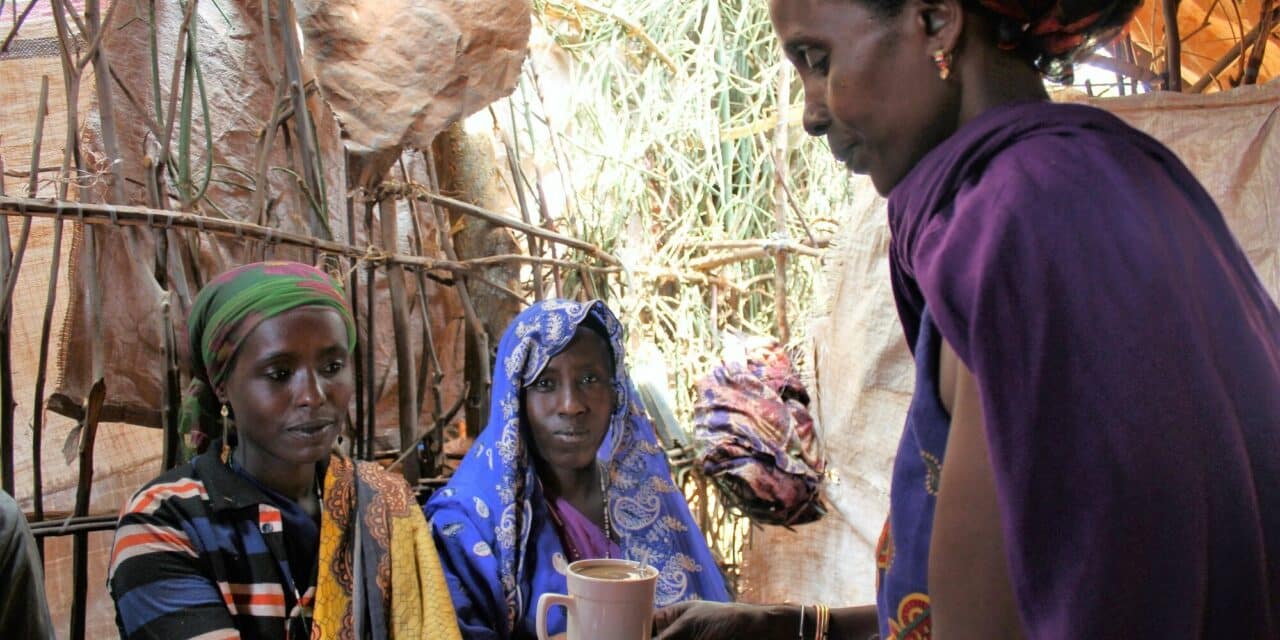
Gender transformation and climate resilience
Running since
2024
Country
Ethiopia
Target reach
37,315
Key focus areas
Act on climate change
Empower women
Protect ecosystems
Active
Gender transformation and climate resilience
Rural women often have a deep understanding of local resource challenges, so there’s a lot to be gained from involving them more fully in natural resource decision-making. The gender transformation and climate resilience project aims to help rural communities in the Afar and Oromia Regional States of Ethiopia adapt to climate change by strengthening the role women can play in the management of natural resources for their communities.
The project aims to unlock that leadership potential by reshaping gender-biased social norms. On the ground, that means championing the inclusion of women within predominantly male organisations, such as farming or forest cooperatives, involving women in promoting climate-smart agriculture and sustainable enterprises, and creating opportunities for women and men to work side-by-side in addressing the development needs of their communities.
This work is being undertaken in partnership with the Union of Ethiopia Women and Children Association (UEWCA) and Population Health and the Environment Ethiopia Consortium (PHE-EC).
Running since
2024
Country
Ethiopia
Target reach
37,315
Key focus areas
Act on climate change
Empower women
Protect ecosystems
Active
Forests for sustainable development
Running since
2022
Country
Ethiopia
Target reach
55,600 households
Key focus areas
Increase food security and nutrition
Increase incomes
Protect ecosystems
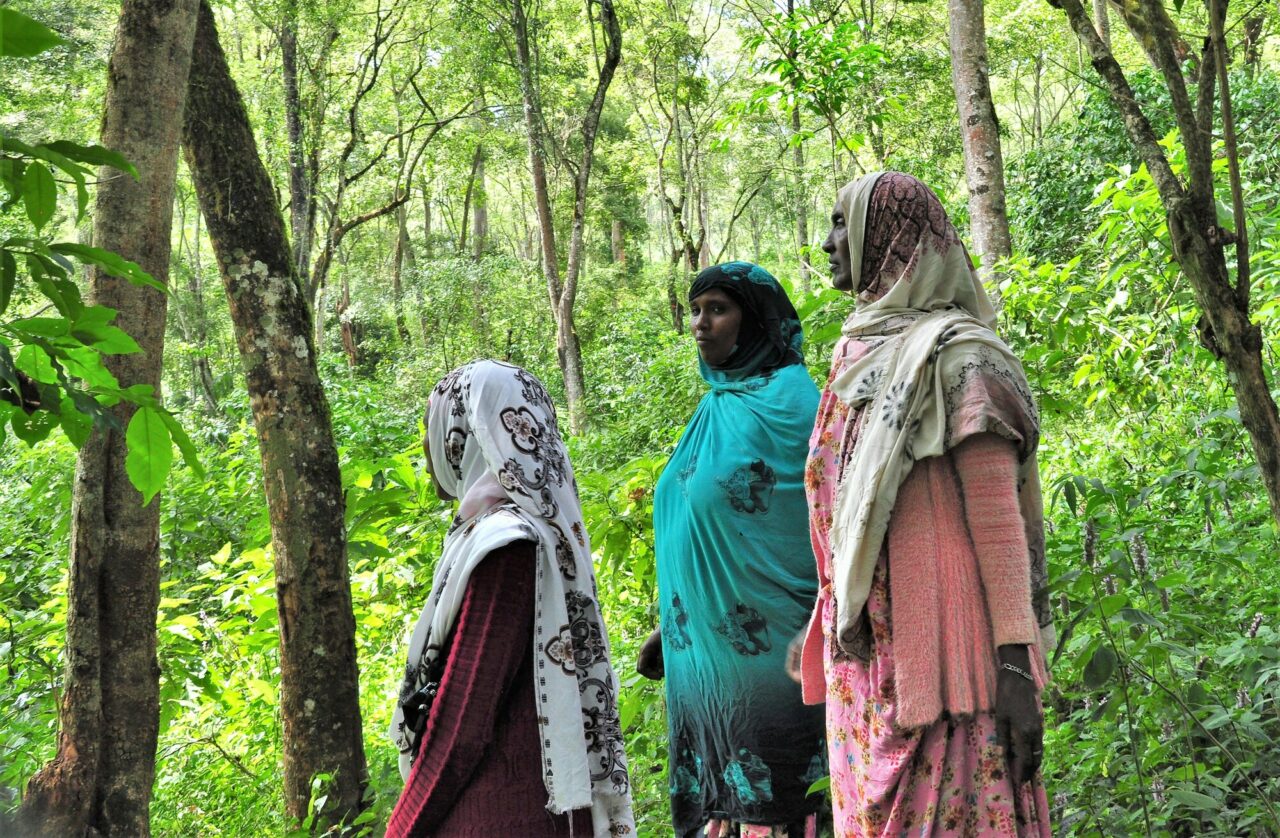
Forests for sustainable development
Running since
2022
Country
Ethiopia
Target reach
55,600 households
Key focus areas
Increase food security and nutrition
Increase incomes
Protect ecosystems
Active
Forests for sustainable development
Farm Africa is implementing Forests for Sustainable Development, a four-year programme in the Oromia Regional State of Ethiopia to build on the success of previous programmes in reducing deforestation, cutting carbon emissions, increasing the incomes of forest-dependent communities and addressing sustainability limitations.
The project will work to benefit both people and planet by developing sustainable livelihoods and reducing biodiversity loss, while also improving the resilience of the local community and improving governance for integrated landscape management.
Running since
2022
Country
Ethiopia
Target reach
55,600 households
Key focus areas
Increase food security and nutrition
Increase incomes
Protect ecosystems
Active
Forest-friendly livelihoods to protect biodiversity in the Bale Eco-region
Running since
2024
Country
Ethiopia
Target reach
120
Key focus areas
Boost productivity
Increase incomes
Protect ecosystems
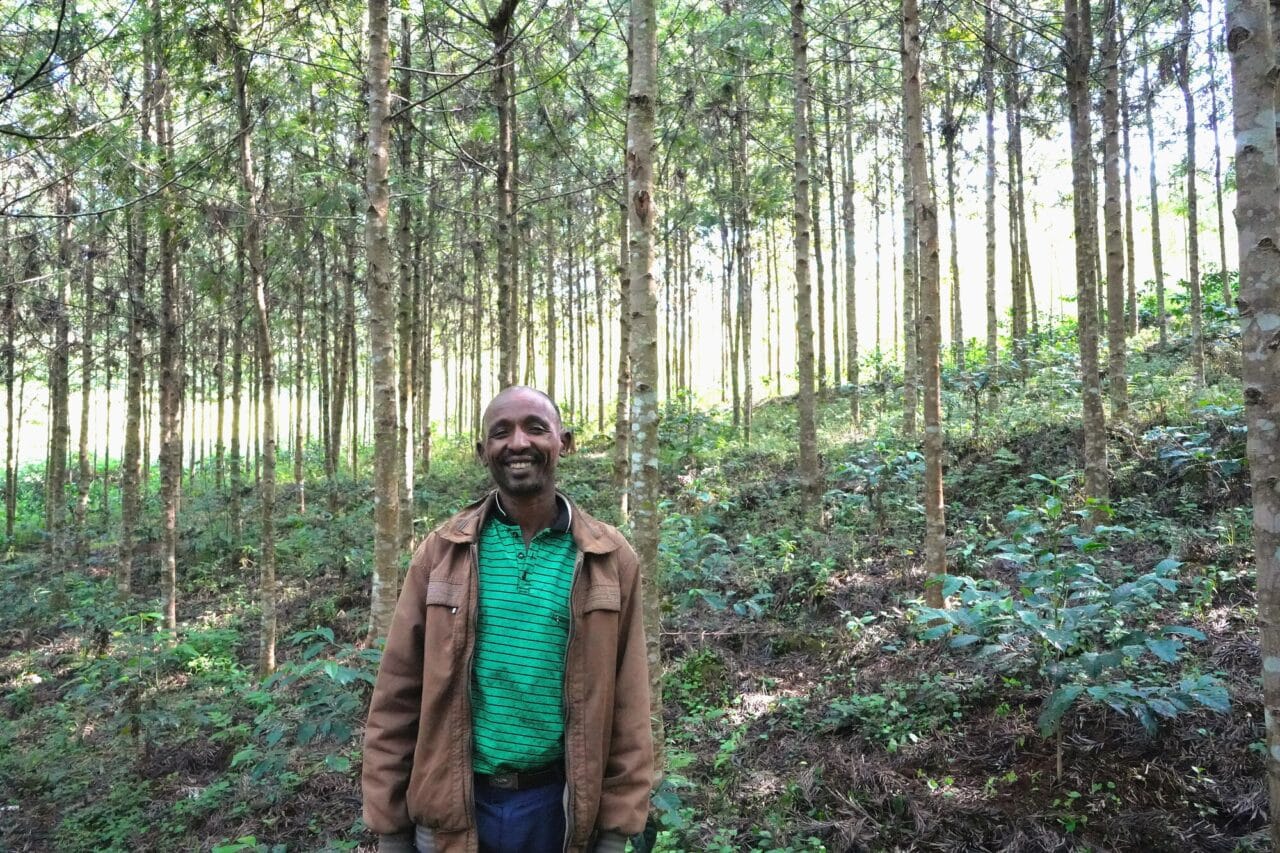
Forest-friendly livelihoods to protect biodiversity in the Bale Eco-region
Running since
2024
Country
Ethiopia
Target reach
120
Key focus areas
Boost productivity
Increase incomes
Protect ecosystems
Active
Forest-friendly livelihoods to protect biodiversity in the Bale Eco-region
Ethiopia’s Bale Eco-region is one of Africa’s most important biodiversity hotspots. However, increasing pressure from population growth and unsustainable land use is degrading the landscape, leading to deforestation, biodiversity loss and declining livelihoods for local communities.
To address these challenges, Farm Africa is supporting smallholder farmers and agro-pastoralists in the Bale Eco-region to develop forest-friendly livelihoods such as sustainable coffee production, agroforestry and woodlot establishment. These efforts not only help rural communities to earn more money, but also reduce pressure on the surrounding forests.
Our work with smallholder farmers is focused on growing sustainable coffee gardens outside the forest. With support including seeds, tools and conservation techniques, farmers have established over 30,000 coffee seedlings outside forest boundaries and are starting to secure better prices for their improved coffee.
Running since
2024
Country
Ethiopia
Target reach
120
Key focus areas
Boost productivity
Increase incomes
Protect ecosystems
Active
Building climate resilience for pastoral communities
Running since
2022
Country
Ethiopia
Target reach
14,125 (50% women)
Key focus areas
Act on climate change
Boost productivity
Protect ecosystems
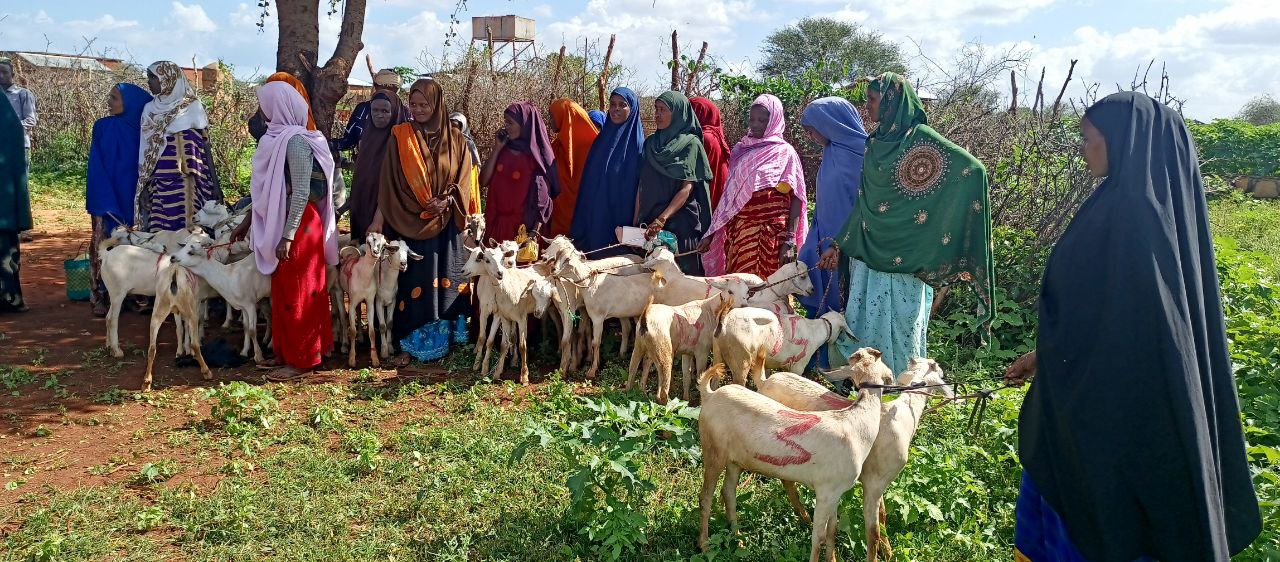
Building climate resilience for pastoral communities
Running since
2022
Country
Ethiopia
Target reach
14,125 (50% women)
Key focus areas
Act on climate change
Boost productivity
Protect ecosystems
Active
Building climate resilience for pastoral communities
Forests in Ethiopia’s Bale Eco-region are under threat from deforestation and biodiversity loss due to agricultural expansion. This exacerbates the impacts of climate change and puts the livelihoods of rural communities at risk.
With funding from the UBS Optimus Foundation, Farm Africa is supporting pastoral communities in the Bale Eco-region to build stronger, more resilient futures. By equipping farmers with tools to withstand climate extremes and economic shocks and improving how the region’s forests, rangelands and water resources are managed, the project is helping both communities and nature to thrive.
We are training farmers and rural communities to restore and protect rangelands in the lowlands, which reduces their reliance on forests in the highlands for pasture and water for their livestock. This relief eases pressure on forests and promotes more sustainable livelihoods.
Running since
2022
Country
Ethiopia
Target reach
14,125 (50% women)
Key focus areas
Act on climate change
Boost productivity
Protect ecosystems
Active
Improving wheat production
Running since
2024
Country
Ethiopia
Target reach
160,000 people
Key focus areas
Boost productivity
Empower women
Increase incomes
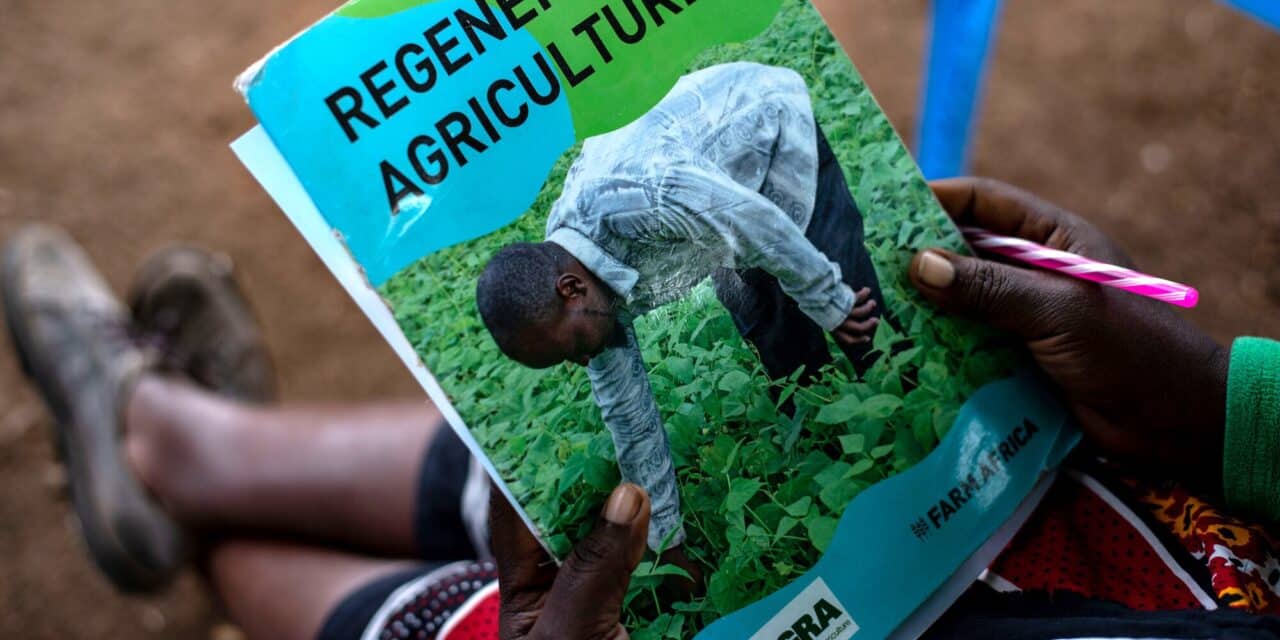
Improving wheat production
Running since
2024
Country
Ethiopia
Target reach
160,000 people
Key focus areas
Boost productivity
Empower women
Increase incomes
Active
Improving wheat production
This programme aims to help 130,450 smallholder wheat farmers in Oromia Regional State, Ethiopia, overcome challenges that are undermining their livelihoods. We’re working together to improve access to advisory services and supplies, improve crop productivity and grain storage methods and increase opportunities to share knowledge. Along the way, we’re aiming to improve opportunities for women and young people, from providing technical training to improving access to finance to creating job and entrepreneurial business opportunities.
Key activities include rolling out training on climate-smart methods for wheat production, modernising post-harvest and storage technologies, supporting local women to start their own agricultural supply and advisory businesses, and supporting women to establish and effectively run their own village savings and loan associations.
The 20-month programme, which launched in October 2024, is funded by AGRA. It draws experience from Farm Africa’s successful regenerative agriculture work in Embu, Kenya, also funded by AGRA.
Running since
2024
Country
Ethiopia
Target reach
160,000 people
Key focus areas
Boost productivity
Empower women
Increase incomes
Complete
Producing and marketing forest products
Running from
2019-2021
Country
Ethiopia
People reached
23,356
Key focus areas
Boost productivity
Increase incomes
Protect ecosystems
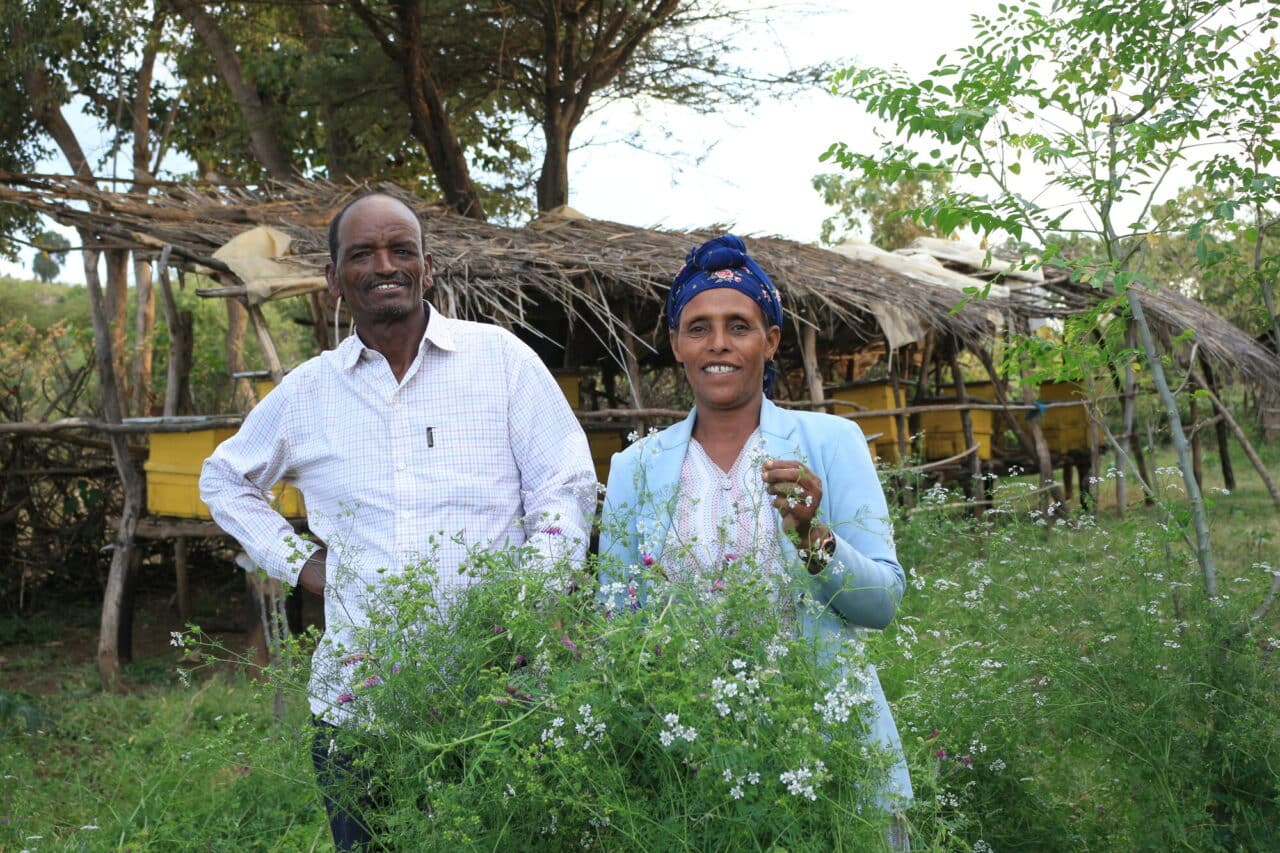
Producing and marketing forest products
Running from
2019-2021
Country
Ethiopia
People reached
23,356
Key focus areas
Boost productivity
Increase incomes
Protect ecosystems
Complete
Producing and marketing forest products
Despite being seen as the preserve of the poor, forest products, such as honey, gum and incense, are a potentially profitable source of income for farmers. Women, young people, refugees and displaced people are the main groups that harvest wild forest products.
Along with the Assosa Environmental Protection Association, Farm Africa worked with forest management committees, which empower farmers to set up sustainable enterprises producing and selling products like honey and incense.
The committees helped farmers build better markets, access finance for their businesses and incentivise them to conserve forests. This project helped broker agreements between forest users and the government on using the area’s natural resources sustainably.
Running from
2019-2021
Country
Ethiopia
People reached
23,356
Key focus areas
Boost productivity
Increase incomes
Protect ecosystems
Complete
Strengthening agricultural market systems in Amhara, Ethiopia
Running from
2020-2023
Country
Ethiopia
People reached
123,666
Key focus areas
Boost productivity
Connect farmers to markets
Increase access to finance
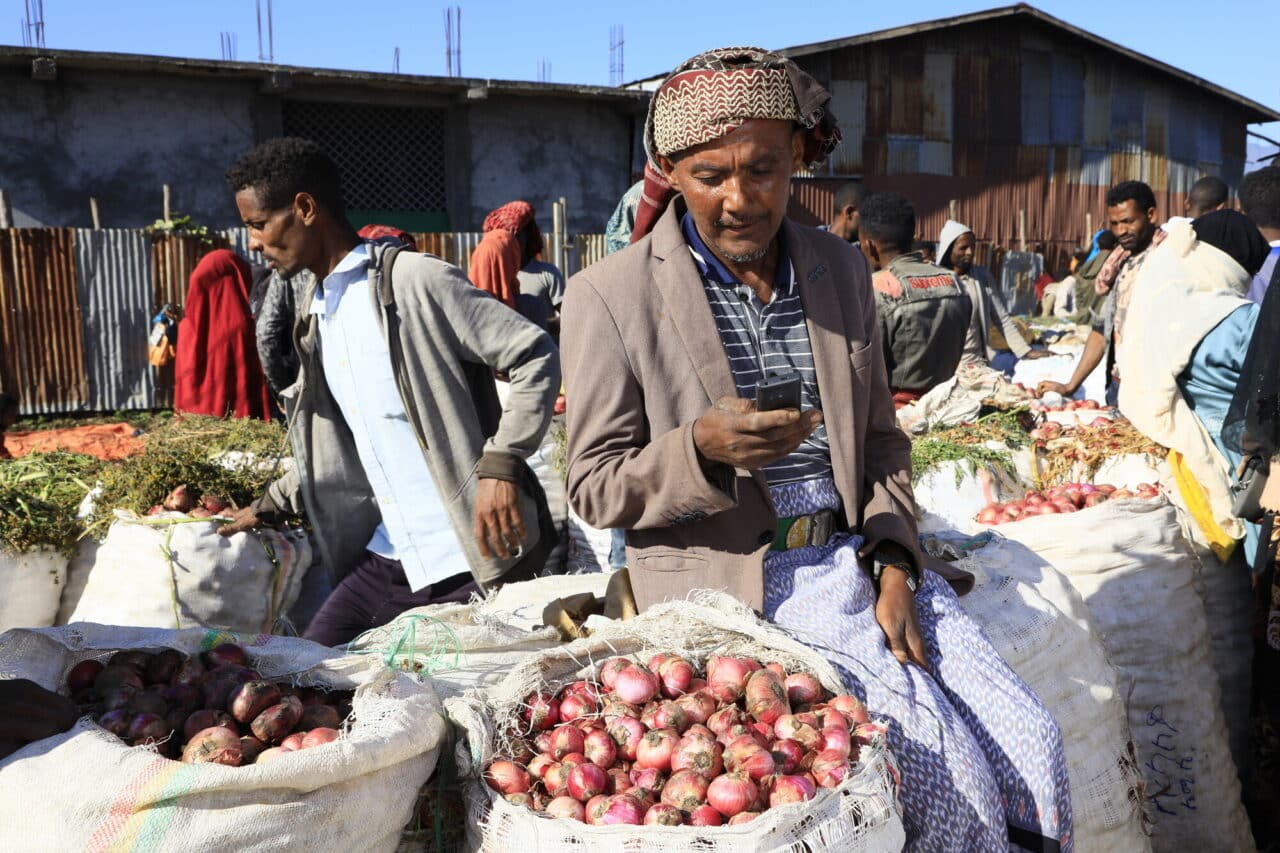
Strengthening agricultural market systems in Amhara, Ethiopia
Running from
2020-2023
Country
Ethiopia
People reached
123,666
Key focus areas
Boost productivity
Connect farmers to markets
Increase access to finance
Complete
Strengthening agricultural market systems in Amhara, Ethiopia
The project aimed to contribute to sustainable food security and livelihood improvement for rural families by making sure smallholder farmers had access to the buyers and suppliers they needed to build thriving farming businesses.
Access to agricultural supplies was improved by facilitating the start-up of independent agro-dealer businesses, with these new local suppliers reporting a total of 70,000 customers by the end of the project. Crop productivity and profit was improved through improvements in post harvest technology, the introduction of cluster farming systems, and the creation of a digital market prices App, which enabled 1,300 farmers to track local market prices digitally. Access to finance was improved through the development of inclusive, low-capital intensive financing solutions which enabled 7,943 smallholder farmers to access finance for the first time.
Running from
2020-2023
Country
Ethiopia
People reached
123,666
Key focus areas
Boost productivity
Connect farmers to markets
Increase access to finance
Complete
Preserving ecosystems in Bale
Running from
2014-2024
Country
Ethiopia
People reached
1.6 million
Key focus areas
Boost productivity
Increase incomes
Protect ecosystems
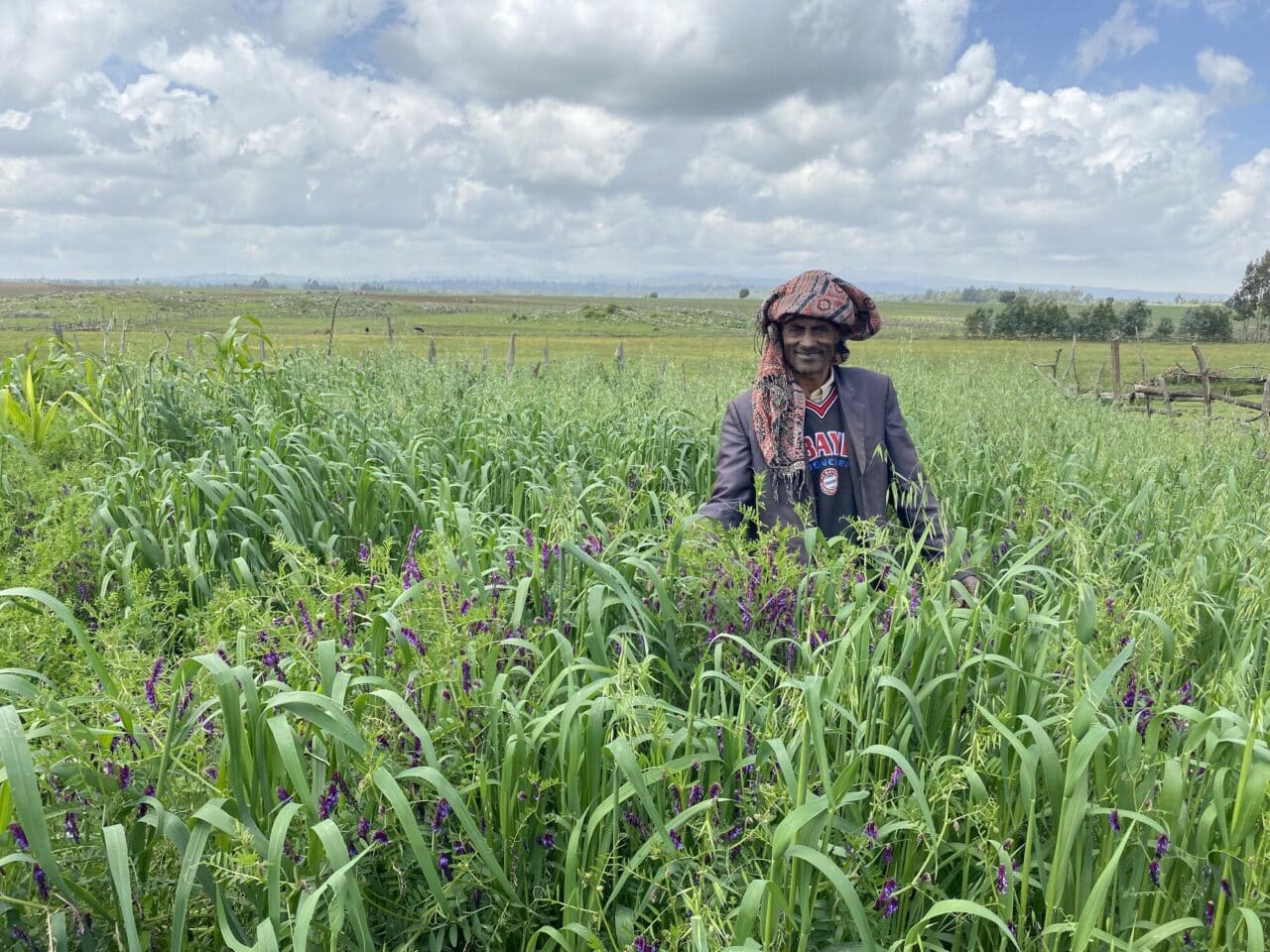
Preserving ecosystems in Bale
Running from
2014-2024
Country
Ethiopia
People reached
1.6 million
Key focus areas
Boost productivity
Increase incomes
Protect ecosystems
Complete
Preserving ecosystems in Bale
Farm Africa worked with a consortium of NGO partners, authorities and communities in Ethiopia to sustainably manage the Bale Eco-Region, a biodiversity hotspot, and enhance the livelihoods of local people, helping to reduce poverty and the current reliance on unsustainable practices.
The programme involved supporting communities to increase forest-friendly businesses and sustainably manage livestock and rangelands. The consortium partners helped promote sustainable timber harvesting and strengthened forest coffee, honey, gum and resin value chains.
We supported women and young people to increase their incomes by developing businesses in rearing goats and producing milk, energy-efficient cook stoves and eco-charcoal.
Running from
2014-2024
Country
Ethiopia
People reached
1.6 million
Key focus areas
Boost productivity
Increase incomes
Protect ecosystems
Complete
Marketing Bale’s wild coffee
Running from
2017-2019
Country
Ethiopia
People reached
5,200
Key focus areas
Boost productivity
Connect farmers to markets
Protect ecosystems
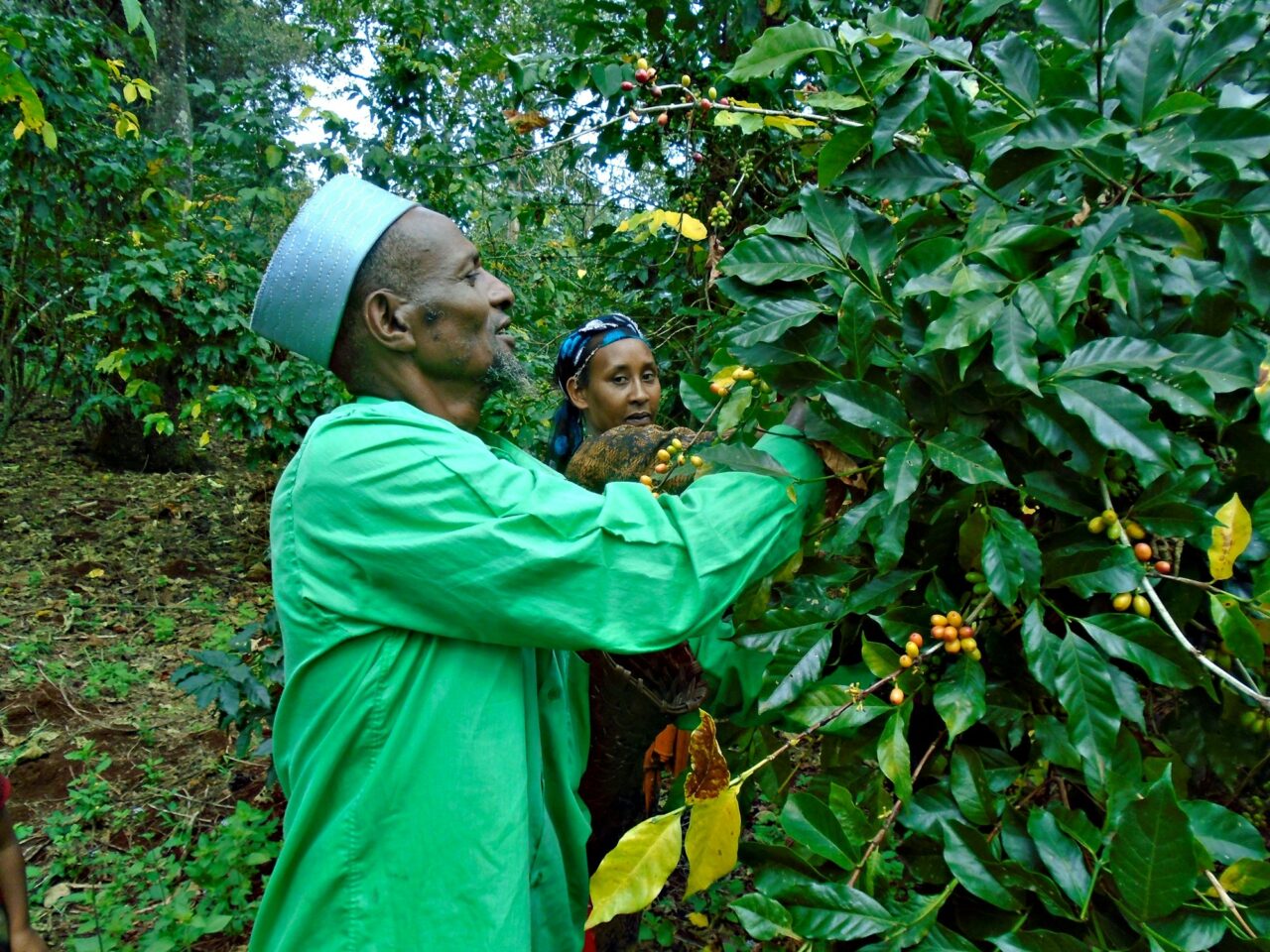
Marketing Bale’s wild coffee
Running from
2017-2019
Country
Ethiopia
People reached
5,200
Key focus areas
Boost productivity
Connect farmers to markets
Protect ecosystems
Complete
Marketing Bale’s wild coffee
Running from
2017-2019
Country
Ethiopia
People reached
5,200
Key focus areas
Boost productivity
Connect farmers to markets
Protect ecosystems
Complete
Forest coffee value chain
Running from
2019-2024
Country
Ethiopia
People reached
29,265
Key focus areas
Boost productivity
Increase incomes
Protect ecosystems
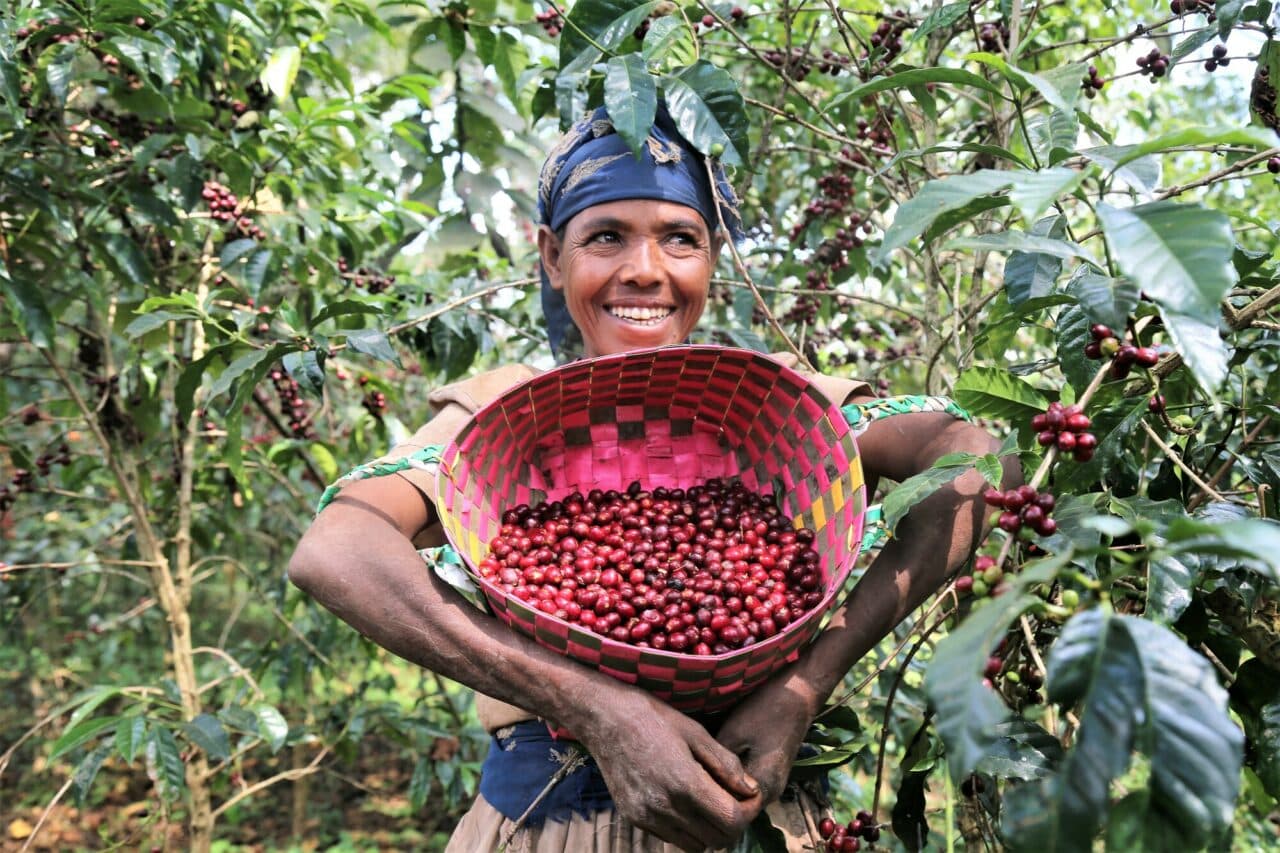
Forest coffee value chain
Running from
2019-2024
Country
Ethiopia
People reached
29,265
Key focus areas
Boost productivity
Increase incomes
Protect ecosystems
Complete
Forest coffee value chain
Running from
2019-2024
Country
Ethiopia
People reached
29,265
Key focus areas
Boost productivity
Increase incomes
Protect ecosystems
Complete
Making forestry sustainable
Running from
2019-2022
Country
Ethiopia
People reached
350,000
Key focus areas
Act on climate change
Increase incomes
Protect ecosystems
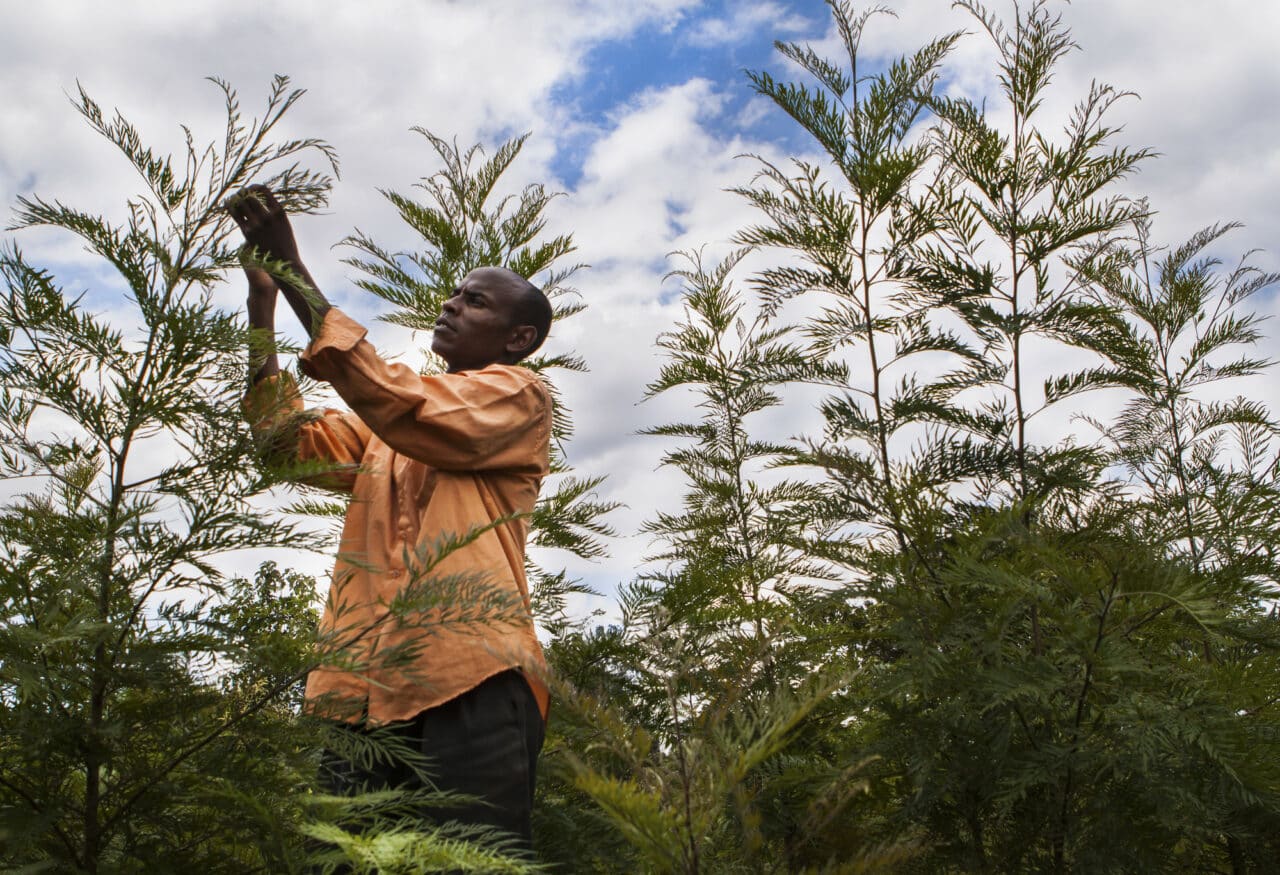
Making forestry sustainable
Running from
2019-2022
Country
Ethiopia
People reached
350,000
Key focus areas
Act on climate change
Increase incomes
Protect ecosystems
Complete
Making forestry sustainable
Since 2006, Farm Africa and a consortium of partners have been working in Ethiopia’s Bale Eco-region on a participatory forest management scheme. This scheme supports local forests users and the government to manage the responsibilities and benefits of the region’s forests together.
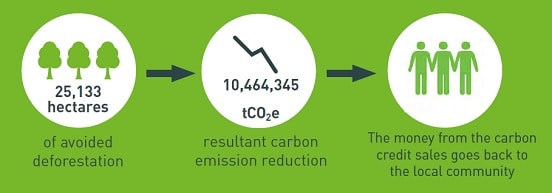
During this project, we increased local communities’ ability to earn money from the forests while protecting its resources by piloting sustainable timber production and marketing and improving the inclusivity of forest management organisations. We engaged women and underrepresented groups to participate in project activities and helped communities reinvest their capital from the sale of carbon credits in local eco-friendly businesses.
Running from
2019-2022
Country
Ethiopia
People reached
350,000
Key focus areas
Act on climate change
Increase incomes
Protect ecosystems
Complete
Livelihoods for refugee and host communitites
Running from
2018-2022
Country
Ethiopia
People reached
2,000
Key focus areas
Act on climate change
Boost productivity
Increase incomes
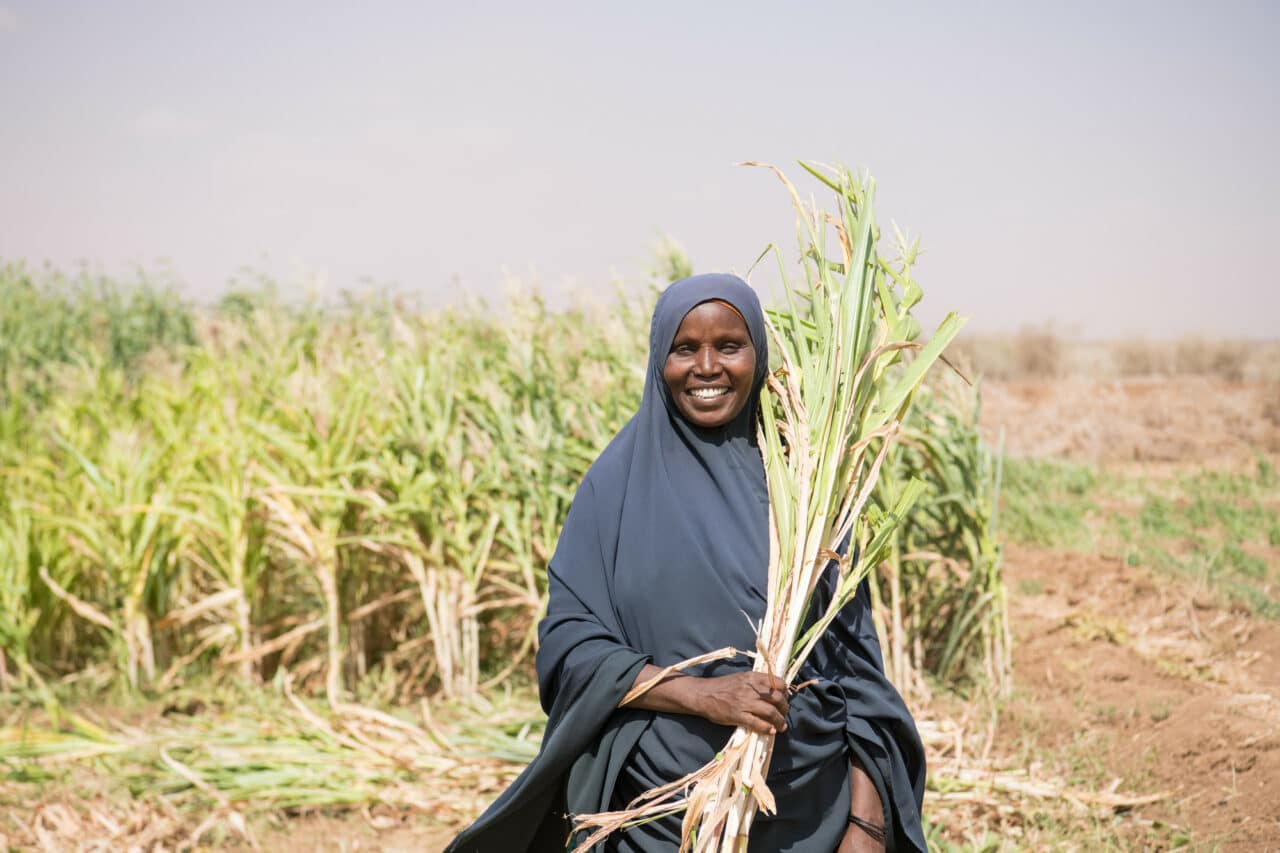
Livelihoods for refugee and host communitites
Running from
2018-2022
Country
Ethiopia
People reached
2,000
Key focus areas
Act on climate change
Boost productivity
Increase incomes
Complete
Livelihoods for refugee and host communitites
Farm Africa partnered with Mercy Corps to equip groups dependent on aid with the knowledge, resources and access to markets they needed to become self-sufficient.
Running from
2018-2022
Country
Ethiopia
People reached
2,000
Key focus areas
Act on climate change
Boost productivity
Increase incomes
Complete
Market approaches to resilience
Running from
2015-2018
Country
Ethiopia
People reached
178,620
Key focus areas
Act on climate change
Empower women
Increase access to finance
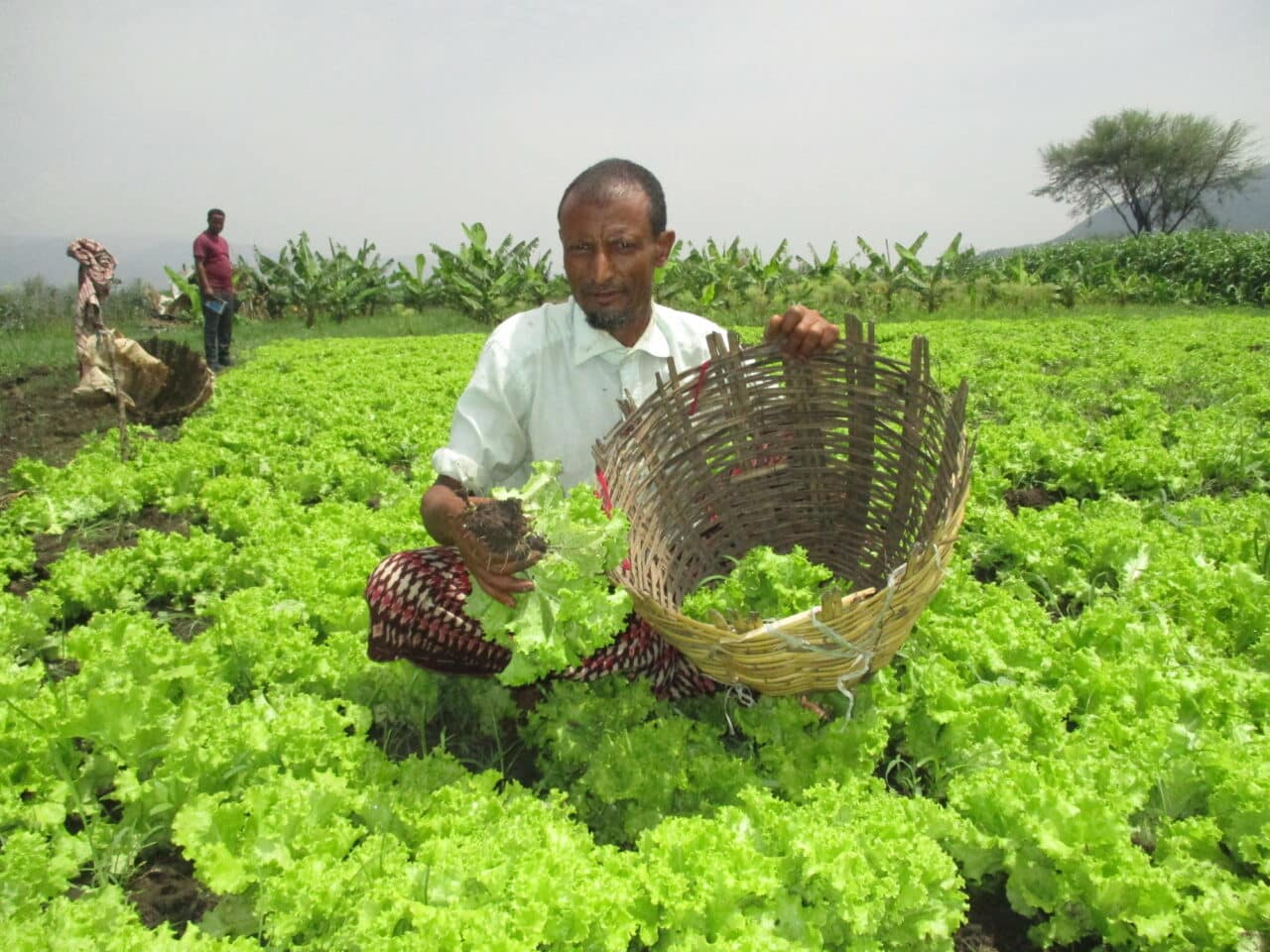
Market approaches to resilience
Running from
2015-2018
Country
Ethiopia
People reached
178,620
Key focus areas
Act on climate change
Empower women
Increase access to finance
Complete
Market approaches to resilience
Part of the UK Government funded BRACED (Building Resilience and Adaptation to Climate Extremes and Disasters) programme, Market Approaches to Resilience (MAR) was an innovative three-year programme that tested market-based approaches to improve the resilience of vulnerable pastoralist and agro-pastoralist households to climate change in the Afar, SNNP and Somali regions. It was implemented by a consortium led by Farm Africa, with Mercy Corps, Lion’s Head Global Partners and LTS International Limited as partners.
A particular focus of the programme was to improve the economic participation and independence of women, who are particularly vulnerable to the negative impacts of climate shocks and trends. The MAR programme supported households, businesses and communities in better managing their resources and everyday risks. It worked with private investors to address climate risks by promoting appropriate economic opportunities, and designing financial models that help smooth risk.
Other approaches included strengthening climate information by funding weather station infrastructure and supporting participatory rangeland and natural resource management. It also supported microfinance institutions to incorporate climate risk into their risk management portfolios and help them develop innovative credit products. MAR supported financial institutions to expand mobile banking to remote areas. Overall, the MAR project directly benefited an estimated 178,620 people in Ethiopia.
Running from
2015-2018
Country
Ethiopia
People reached
178,620
Key focus areas
Act on climate change
Empower women
Increase access to finance
Complete
Food security in Tigray
Running from
2012-2017
Country
Ethiopia
People reached
6,400
Key focus areas
Boost youth employment
Empower women
Increase food security and nutrition
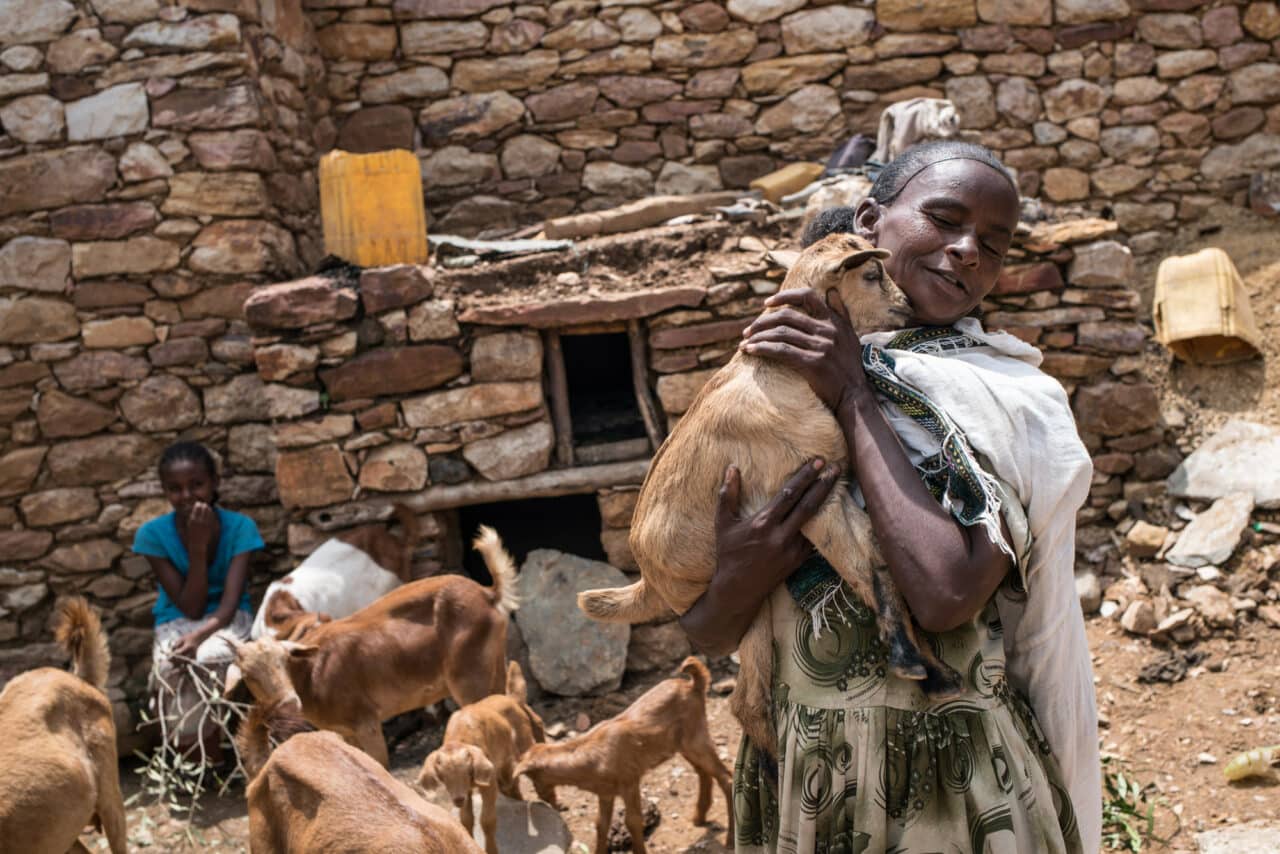
Food security in Tigray
Running from
2012-2017
Country
Ethiopia
People reached
6,400
Key focus areas
Boost youth employment
Empower women
Increase food security and nutrition
Complete
Food security in Tigray
Between 2012 and 2017, Farm Africa ran a project based in the central zone of the Tigray region where 80% of the population live in rural areas and levels of poverty and malnutrition are very high. This project worked directly with nearly 6,400 women and landless young people, providing them with crops, livestock and training.
Running from
2012-2017
Country
Ethiopia
People reached
6,400
Key focus areas
Boost youth employment
Empower women
Increase food security and nutrition
Complete
Cultivate
Running from
2019-2022
Country
Ethiopia
People reached
20 agribusinesses
Key focus areas
Connect farmers to markets
Increase incomes
Support businesses
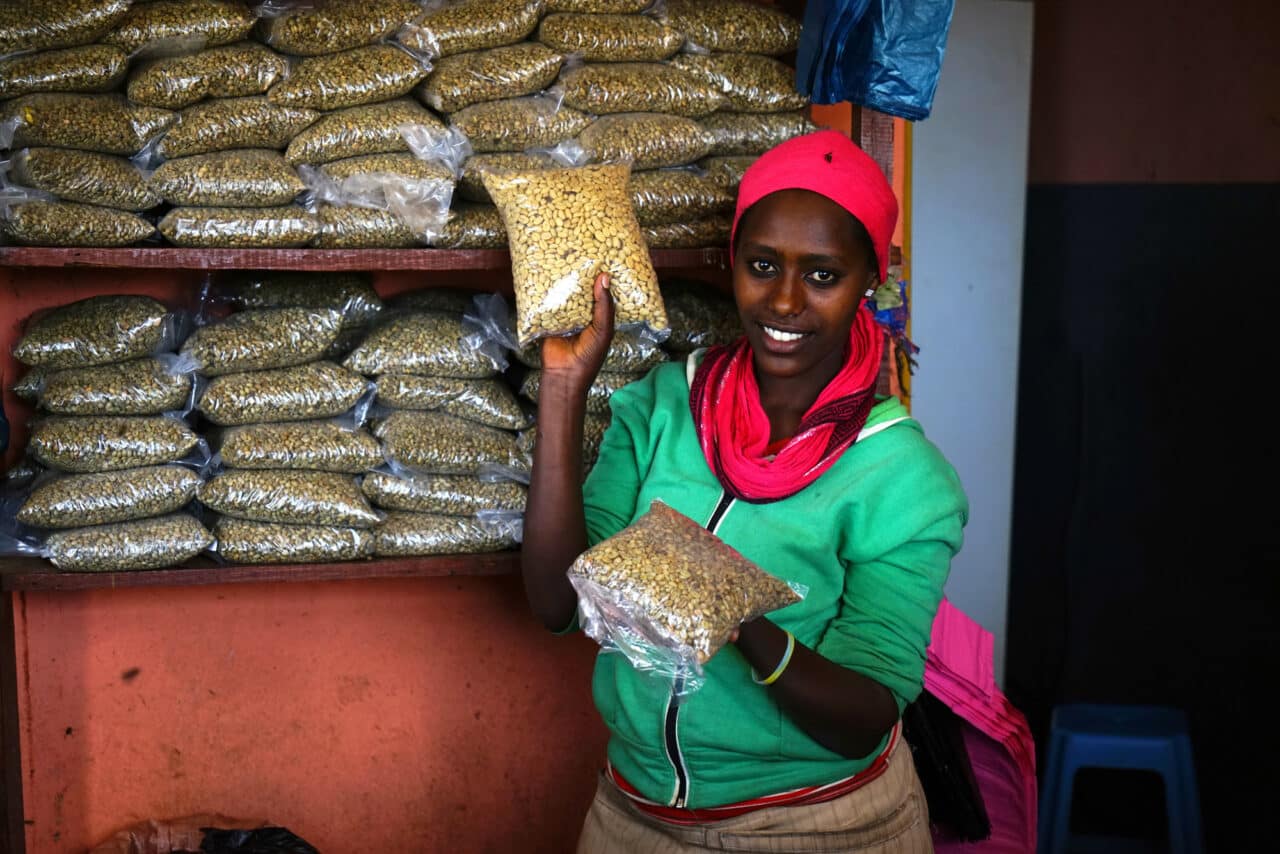
Cultivate
Running from
2019-2022
Country
Ethiopia
People reached
20 agribusinesses
Key focus areas
Connect farmers to markets
Increase incomes
Support businesses
Complete
Cultivate
With financial support from the Vitol Foundation, Cultivate provided businesses in Kenya, Tanzania and Ethiopia with tailored business development support and training using scalable online delivery mechanisms. Drawing on Farm Africa’s experience of analysing value chains and supporting first-mile agribusinesses, Cultivate worked with start-up and early-stage businesses with a $20,000 – $1million turnover.
Based in Kenya, Cultivate aimed to increase demand and facilitate the supply of business development services to rural small and growing agribusinesses (SGBs) across eastern Africa. We helped businesses develop and implement effective business strategies, boost their productivity and production, meet commodity standards and improve marketing operations and market access.
Through Cultivate’s online business skills training sessions and technical advisory support, SGBs identified risks and opportunities, conducted market and opportunities analysis, fostered business resilience and improved their pricing, costing and profitability for sustainable growth.
Running from
2019-2022
Country
Ethiopia
People reached
20 agribusinesses
Key focus areas
Connect farmers to markets
Increase incomes
Support businesses
Complete
Climate-smart agriculture
Running from
2014-2019
Country
Ethiopia
People reached
40,485 households
Key focus areas
Act on climate change
Increase incomes
Protect ecosystems
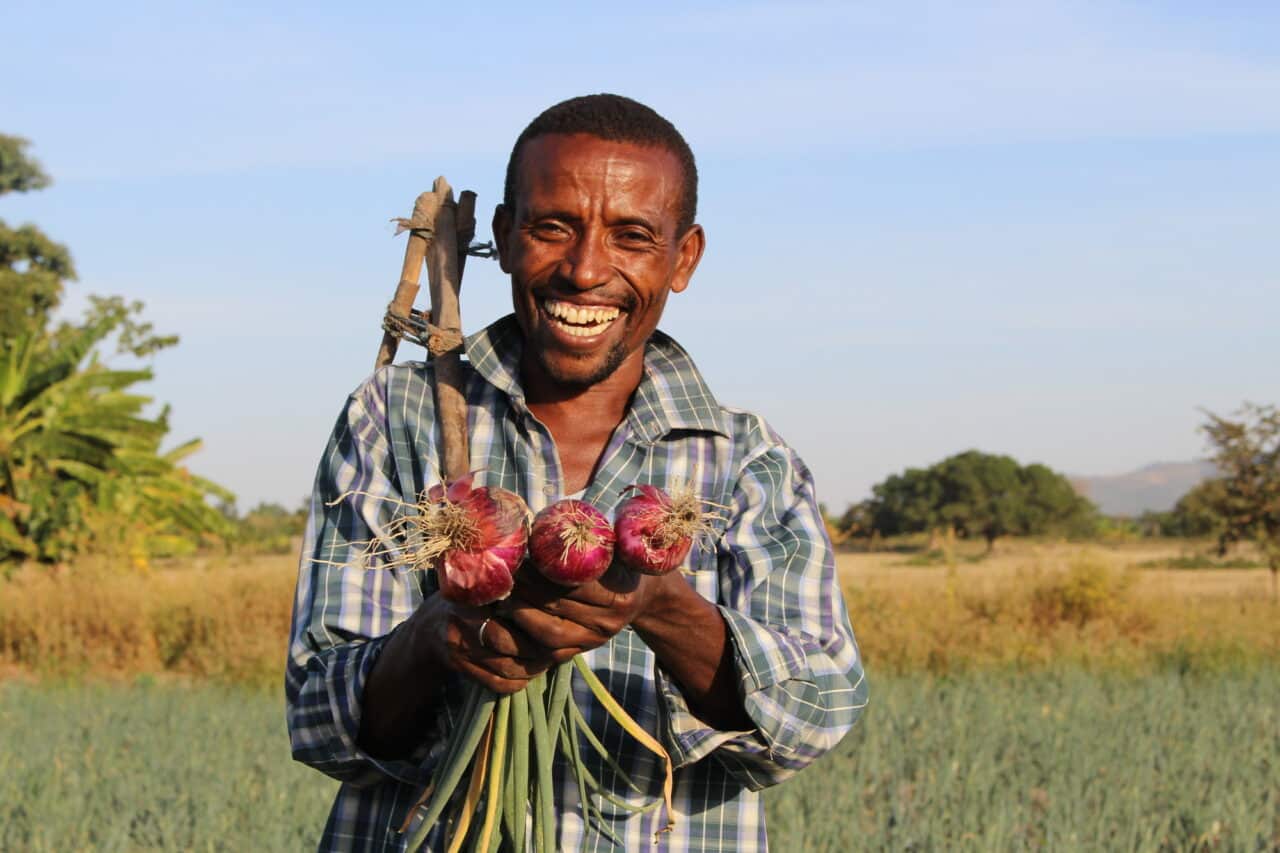
Climate-smart agriculture
Running from
2014-2019
Country
Ethiopia
People reached
40,485 households
Key focus areas
Act on climate change
Increase incomes
Protect ecosystems
Complete
Climate-smart agriculture
In many regions in Ethiopia, soil degradation and damage to natural resources caused by climate change is threatening farmers’ livelihoods and affecting long-term food security.
Running from
2014-2019
Country
Ethiopia
People reached
40,485 households
Key focus areas
Act on climate change
Increase incomes
Protect ecosystems

